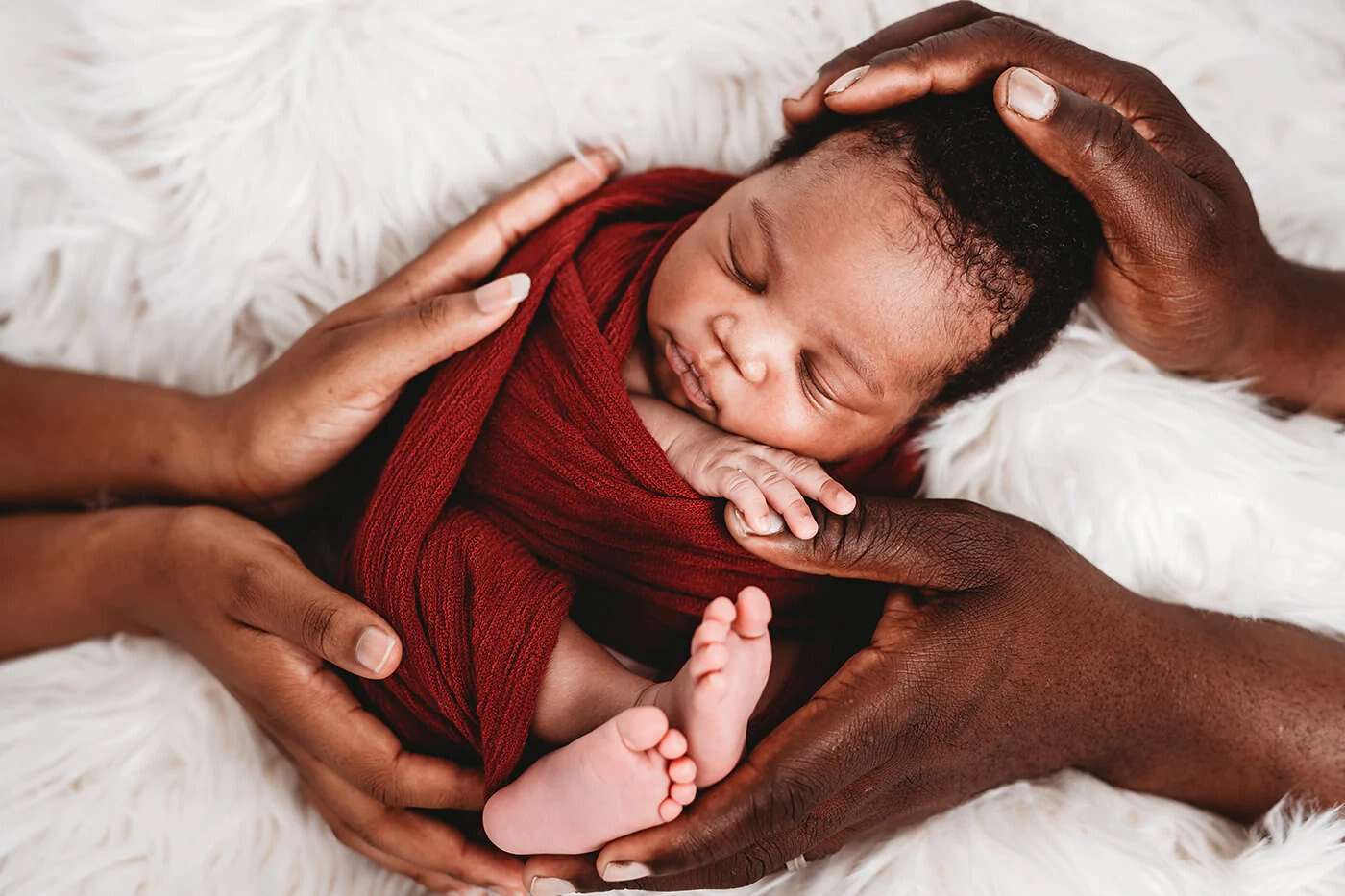List of Ga Names for Baby Boys & Girls & Their Meaning

When a child is born into the Ga community, it needs to be out doored and named after eight days. During the naming ceremony, a person of good and reputable character from either of the two families has to take the child in his arms, hold it up and bring it down three times gently on the floor, and sprinkle water on it three times. Then the father’s family goes on to name the child.
Next, the owner, or the eldest person in the house or quarter where the ceremony is being performed, will say the following prayer to bless the child:
Tsua Tsua Tsua manye aba. Tsua Tsua Tsua manye aba. Tsu-a Tsu-a Tsu-a manye aba, Osoro (Osu) Ahatiri, Obu Ahatiri, Oboro dutu wokpe, Wodsebu wodse nu, Wo ye wo nu wo kodsii adso wo, Gboni bale etse yi ana wala, Enye yi ana wala, Esee tuu, Ehee fann, Eyi aba gbodsen, Ese aba halaann, Wekumei wona faa ni wo fa le, Eba tsu eha wo ni woye, Eko atasi ni eko aba, Ganyo humile koyo tsua dani owieo, Tsua Tsua Tsua manye aba,”
To which the others answer, “Yao!” A free translation into English of the above would be:
Oyez! may the Gods pour their blessing upon us! Oyez! may the Gods pour their blessing upon us! Oyez! may the Gods pour their blessing upon us!
A child has been born (presented); we have formed a circle round to view it.
The Ga community has different settlements and family groups, and they name their children according to these settlements and families. So it is easy to know which family someone is from just by hearing their name. The two sets of names are the first name and second names. The first is the father’s name, and the second is the child’s.
The child’s name is chosen from the following;
Family name
Fetish name
Kra names
Nicknames
Other times, they can be chosen according to the birth circumstances of the child’s birth
Family Names
- Advertisement -
Ankrah
The Ankrah’s of Otublohum of Otoo street, Dutch Accra. Their names include Ayigya, Ayite, Okaile, Ayikaile
Ama Family
The Ama family in the Asere quarter of Dutch Accra is called Amatswe, and the people living there called Amatswebii names include Ama, Amate, Amakai, Amatei, Amalai, Amakwei, Amalei, Boi and Laryea
Borrowed names to give male children that may follow are Amele, Ahine, Amokor, Amateokor, Amakai, Amatekai, Amatso and Amatetso
The Kwate family
The Kwate or Kpakpa family, also in the Asere quarter known as Kpakpatsewe people name Kwate or Kpakpa Kwatei, Kwate Kwatelai Kwateokor, Kwakwei Laryea
The Damte Family
The Damtedsanwe people name Odartey Lamptey or Damte Lamile Koshi, Odatei Lamtei Lamiokor Odakor, Odakwei Lamkwei Lamikai Odakai, Odalai Lamiaya Lamtsoi Odacho
Stool Name
The Ga stool _ Nicknamed Takyi. The names of the occupants of the Ga stool since the eighteenth century are Yaote, Adama, Obile, and others which are challenging to give in detail.
The Gbese stool _ Nicknamed Okaija. The names of the Gbese family stool holders ever since its foundation are:
Males. First Line Second Line (1) Ayi. (1) Ayite. (2) Ayikwei. (2) Amma. (3) Ayai. (3) Adu. (4) Boi. (4) Okai. (5) Adama. (6) Ayikai. (7) Teiko. (8) Ankama.
Females. First Line. Second Line (1) Ayikale. (1) Okaile. (2) Ayikaikor. (2) Okaikor. (3) Ayikaikai. (3) Okaikai. (4) Ayikaitso. (4) Okaitso. (5) Ayikaifo. (5) Okaifo.
The Abola Stool _ Nicknamed Nunu. The name of the Abola Stool holder is generally known as Nunoo, followed by Anuum, words which are not strictly Ga.
The Otublohum Stool _ the name of the Otublohum stool holder, is Amu, followed by Daku and other names, which are strictly Akwamu in origin.
The Asere Stool _ the name of the Asere stool holder is not fixed since the change took place after the fall of the Ga Mantse in June 1660, during the Akwamu War, as described in the article on the “Native Tribunals among the Gas.” Still, the present names are taken from the two families which supply occupants for the stool.
The Sempe Stool – Nicknamed Anege. The name of the Sempe stool holder is generally known as Anege; the other names are Kpakpo, Akwei, &c.
The Akamai-je Stool – Nicknamed Ayikai. The name of the Akamai-je stool holder is Ayikai.
The Alata Stool _ the name of the Alata stool holder is now ganerally Kojo, but this is not a Ga name.
The Ga Akwason Stool _ Nicknamed Kpakpa. The name of the stool holder of the Kpakpatsewe family is Kwate or Kpakpa, but the stools themselves are called Kpakpa and Kwatei.
Circumstances of Birth
Astwei : First born female child
Akweley and Akuokor : Given to two set of female twins
Ayokor : Second female child
Kaa : Third female child
Tsotsoo : Fourth female child
Fofo : Fifth female child
Ashami : Sixth female child
The Ga Mashie community also name Nii, Naa, Dede, Oko.
Bottomline
The Ga people are still one of the ethnic groups of Ghana that have held on to their culture for a long time. They still need to remove and add to their customs. The above will help you to identify the meaning and lineage of the names of your Ga friends.


